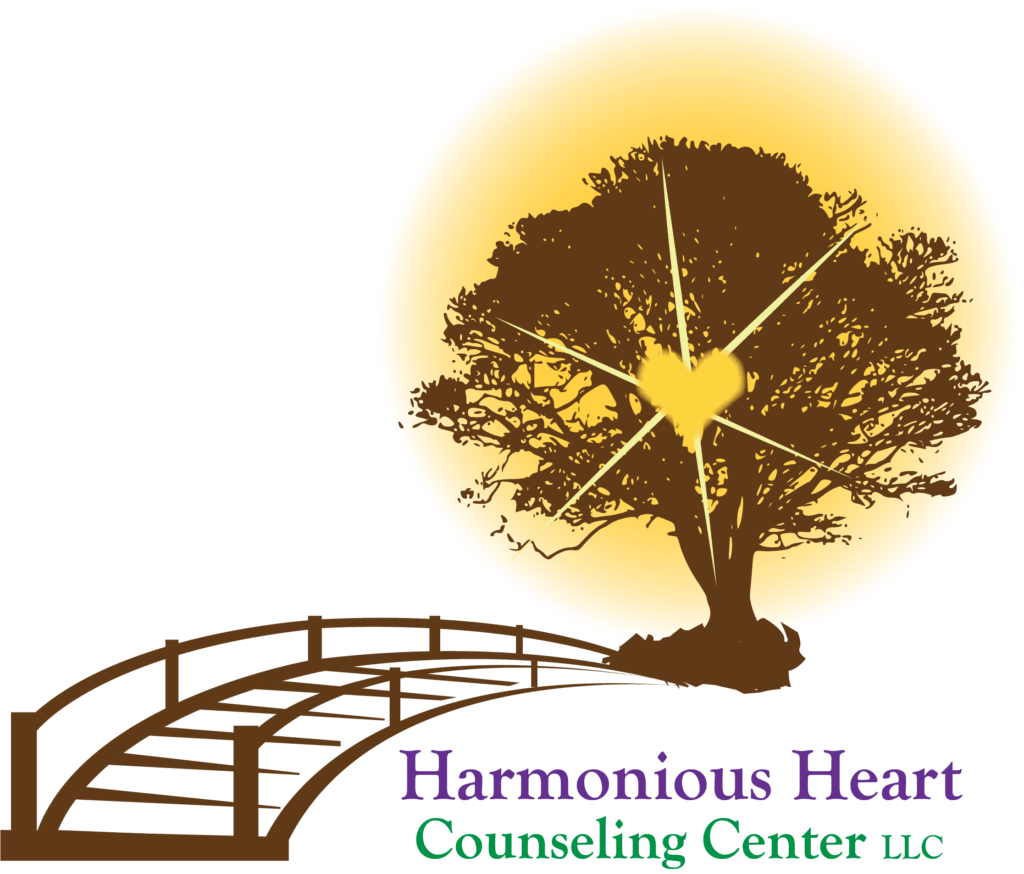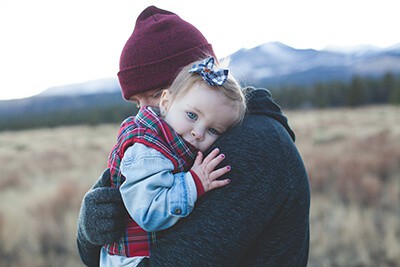If you’ve been reading the Harmonious Heart blog for any length of time, you probably know more than a little bit about mindfulness. It’s a favorite topic around here because it works so well to improve almost all areas of your life.
In this post, we’ll explore how mindful parenting can help you raise happier, healthier children (and become a little happier and healthier yourself in the process).
Mindfulness is generally thought of as a calming mental state reached through focusing your awareness on the present. Sometimes called “being in the now” or “living in the present,” the aim of mindfulness is to settle your consciousness on your thoughts, feelings, and physical sensations in this present moment. It sounds very simple, but there’s beauty in simplicity—this process is not only highly therapeutic, it can bring real and positive changes into your life.
When you’re in a mindful state, you’re completely attentive to your experience in the present moment without having to worry about the past or be anxious about the future. What better way to connect with your child?
 Choosing Your Actions Instead of Being Controlled By Your Emotions
Choosing Your Actions Instead of Being Controlled By Your Emotions
Raising kids of any age is an emotional experience (even if they’re all grown up!). Mindfulness allows you to “step outside” of these emotions, observe them, and thus become consciously aware of what you’re feeling and why.
A mindful awareness of your emotions allows you to choose how to respond to them—or to not respond to them at all. Sometimes, not responding or not over-reacting is exactly what a situation requires.
As parents, we have to understand that our children will, indeed, act like children. Their brains are not yet fully developed. Their cognitive abilities are not as sophisticated as an adult. In short, they process the world much differently than an adult does. As adults, it is our responsibility to provide (take out this part, please We’re the adults in every situation until they’re grown, and part of providing) them with the most loving, fair, and emotionally generous upbringing possible. It’s up to the adults in their lives is to learn how to regulate our own emotions and behaviors.
Emotional Regulation Is a Parent’s Responsibility
Emotional regulation, that is, choosing how we interpret and act upon our feelings, is, perhaps, one of the most responsible and loving actions we can take as parents.
No parent is ever perfect. There will be many times in the child’s life when an adult reacts in a less than ideal way. By practicing mindfulness, you, as a loving parent, can reduce the frequency with which those hurtful reactions can be directed at your child.
 Mindfulness Is Not About Stopping or “Controlling” Emotions…
Mindfulness Is Not About Stopping or “Controlling” Emotions…
…It’s about becoming aware of them, accepting them and yourself, and making healthier, more loving decisions as part of that process.
This misconception about mindfulness is an unfortunate one, because it turns people away from what would otherwise be a wonderful tool to enhance their interpersonal relationships, both with children and adults. However, ultimately, mindfulness is about strengthening the relationship one has with oneself.
Mindfulness allows us to become more “tuned in” to our innermost selves within a given moment of time. Mindfulness doesn’t mean stopping yourself from experiencing certain emotions nor does it mean controlling them either. It is, emphatically, a way to help you realize the trigger that elicited the emotion and allows you the opportunity to decide how you want to manifest that emotional response in the moment.
There’s a monumental difference between controlling an emotion and choosing how to respond to it. Often times, when we try to control our emotions, we stuff them down creating a “pressure cooker” type response that, eventually blows up into a raging drama. This would never be helpful for you or your child.
There is another helpful aspect to mindfulness. When we can become aware of the experience our child might be having, we can better understand their reaction to a situation. As an example, if you are shopping together and your child seems unreasonably upset over “nothing”, applying mindfulness allows you the opportunity to stop and ask yourself, “is it past his nap time?” “Might she be hungry because we are out past her usual lunch time?”
Rarely do children try to be brats or obnoxious. Because of their immature brain development, they often don’t know what it is they are feeling. As adults, we can help them navigate their own emotions when we can be mindful or our own. Mindfulness allows us to feel our own feelings of frustration, anger, hunger, or tiredness, accept them, and despite them choose to respond in the most loving, generous, and fair way to the child.
Don’t Go It Alone
Because trying to become a better, more loving parent isn’t an easy process, there are many ways to get help and support. At Harmonious Heart Counseling, our workshop on Parenting Tots teach parents how to utilize skills and techniques that move you away from anger, frustration, or even violence, and closer to love and acceptance without being overly permissive, losing your boundaries, or your authority.
The Parenting Tots Workshop is a three-hour seminar for parents only. Without children around, you can be free to speak frankly about the challenges of parenting as we help you talk through solutions. It is helpful, but not mandatory when all parenting adults can attend together.
If you feel this kind of education would be beneficial to you and your family, please feel welcomed and encouraged to visit our Workshops page to learn more, or reach out to us directly.


 Mindfulness Is Not About Stopping or “Controlling” Emotions…
Mindfulness Is Not About Stopping or “Controlling” Emotions…